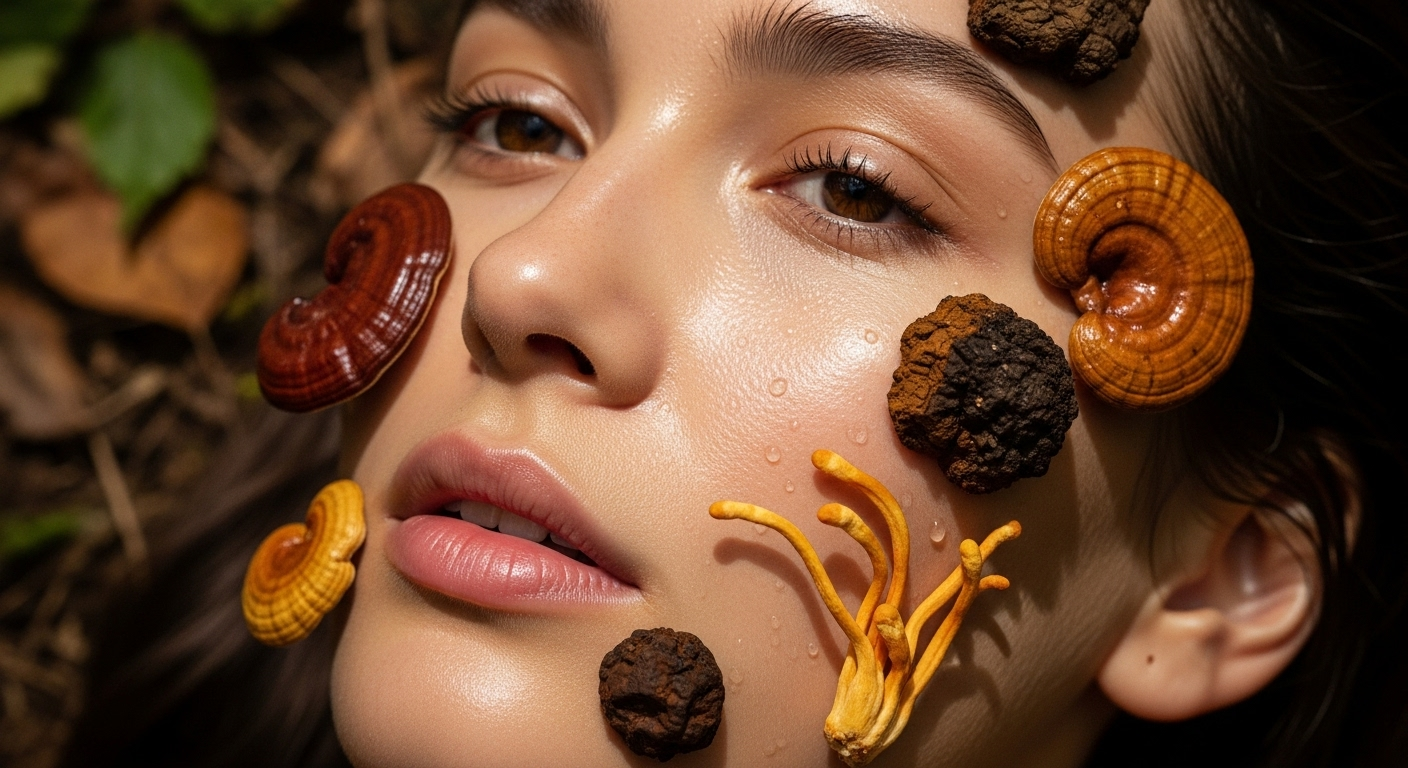Mushroom Mycelia: The Next Frontier in Beauty and Wellness
In the ever-evolving world of beauty and wellness, a groundbreaking innovation is emerging from an unexpected source: the hidden network of fungal threads beneath our feet. Mushroom mycelia, the intricate root-like structures of fungi, are poised to revolutionize skincare, nutrition, and holistic health practices. This natural wonder, long overlooked by mainstream industries, is now capturing the attention of scientists, beauty experts, and wellness enthusiasts alike. As we delve into the fascinating world of mushroom mycelia, we'll uncover its rich history, explore its potential applications, and examine how this ancient organism is shaping the future of beauty and wellness in ways we never imagined possible.

The study of mycelia dates back to the 19th century when botanists first began to understand the true nature of fungi. However, it wasn’t until recent decades that scientists started to fully appreciate the potential of these remarkable structures in various fields, including beauty and wellness. Today, researchers are uncovering the unique properties of mycelia that make them ideal for a wide range of applications, from skincare to sustainable materials.
Mycelia in Skincare: A Natural Revolution
The beauty industry is constantly seeking innovative ingredients that can offer multiple benefits, and mushroom mycelia are emerging as a powerhouse in this arena. Rich in beta-glucans, antioxidants, and various enzymes, mycelia extracts are being incorporated into cutting-edge skincare formulations.
One of the most promising aspects of mycelia in skincare is their ability to enhance the skin’s natural barrier function. The complex polysaccharides found in mycelia can form a protective film on the skin, helping to lock in moisture and shield against environmental stressors. This property makes mycelia-based products particularly effective for those with sensitive or compromised skin.
Moreover, certain mycelia species have shown remarkable anti-inflammatory and wound-healing properties. For instance, extracts from the Ganoderma lucidum (reishi) mycelium have demonstrated the ability to reduce redness and irritation, making them valuable ingredients in products designed for acne-prone or rosacea-affected skin.
Nutritional Powerhouses: Mycelia as Superfoods
While mushrooms have long been recognized for their nutritional value, mycelia are now stepping into the spotlight as superfoods in their own right. Unlike fruiting bodies, which are seasonal and can be challenging to cultivate, mycelia can be grown year-round in controlled environments, offering a sustainable and consistent source of nutrients.
Mycelia are rich in proteins, including all essential amino acids, making them an excellent option for plant-based diets. They also contain an impressive array of vitamins and minerals, including B-complex vitamins, vitamin D, potassium, and selenium. What sets mycelia apart, however, is their high concentration of beta-glucans, complex carbohydrates known for their immune-boosting properties.
The wellness industry is capitalizing on these nutritional benefits by incorporating mycelia into a variety of products, from dietary supplements to functional foods. Mycelia-based protein powders, for example, are gaining popularity among athletes and fitness enthusiasts as a sustainable and nutrient-dense alternative to traditional protein sources.
Bio-fabrication: Mushroom Mycelia in Sustainable Beauty Products
As the beauty industry grapples with sustainability challenges, mycelia are offering innovative solutions. The unique growth patterns and adaptability of mycelia make them ideal for bio-fabrication, a process that uses living organisms to create materials and products.
Researchers are exploring ways to grow mycelia into specific shapes and structures, which can then be used to create sustainable packaging for beauty products. Unlike traditional plastic packaging, mycelia-based materials are fully biodegradable and can be grown using agricultural waste products, making them an environmentally friendly alternative.
Beyond packaging, mycelia are also being used to create sustainable textiles. These “mushroom fabrics” have potential applications in the beauty industry, from eco-friendly makeup removal pads to biodegradable face masks. The natural antimicrobial properties of certain mycelia species add an extra layer of functionality to these products, potentially reducing the need for synthetic preservatives.
The Wellness Connection: Mycelia and Holistic Health
The potential of mushroom mycelia extends beyond topical applications and nutrition, reaching into the realm of holistic wellness. Traditional medicine systems, particularly in Asia, have long recognized the medicinal properties of certain mushroom species. Now, modern research is uncovering the specific roles that mycelia play in these health benefits.
Studies have shown that compounds found in mycelia can modulate the immune system, potentially offering support against a range of health issues. For example, beta-glucans from mycelia have demonstrated the ability to enhance the activity of natural killer cells, a crucial component of the body’s defense against pathogens and abnormal cells.
In the wellness industry, this research is translating into a new generation of adaptogenic supplements and functional beverages. Mycelia extracts are being incorporated into products designed to support stress management, improve cognitive function, and enhance overall well-being. As consumers increasingly seek natural solutions for health and wellness, mycelia-based products are positioned to meet this demand with their unique combination of nutritional and medicinal properties.
Challenges and Future Prospects
While the potential of mushroom mycelia in beauty and wellness is immense, there are challenges to overcome. Standardization of extraction methods and quality control are crucial to ensure consistent efficacy and safety of mycelia-based products. Additionally, consumer education is needed to differentiate between the various species of mycelia and their specific benefits.
Looking ahead, the future of mycelia in beauty and wellness appears bright. Ongoing research is uncovering new species with unique properties, and advancements in cultivation techniques are making it possible to scale production sustainably. As the industry continues to innovate, we can expect to see an even wider range of mycelia-based products, from personalized skincare formulations to novel wellness therapies.
In conclusion, mushroom mycelia represent a fascinating convergence of ancient wisdom and cutting-edge science in the beauty and wellness space. As we continue to unlock the secrets of these remarkable organisms, they offer the promise of more sustainable, effective, and holistic approaches to self-care and well-being. The mycelia revolution is just beginning, and its impact on the beauty and wellness industry is poised to be truly transformative.






